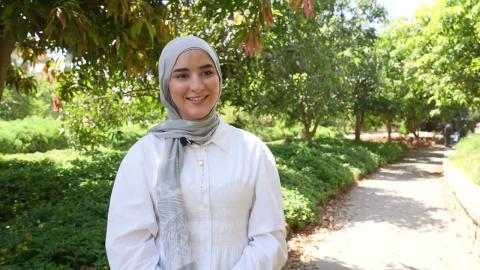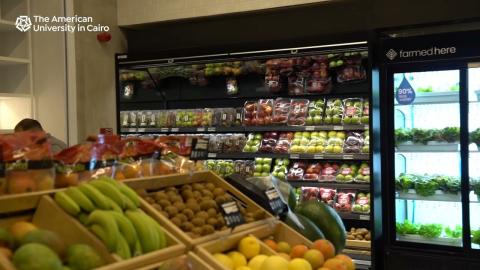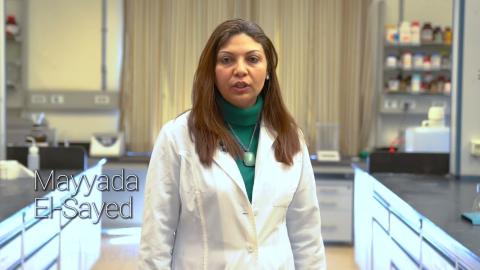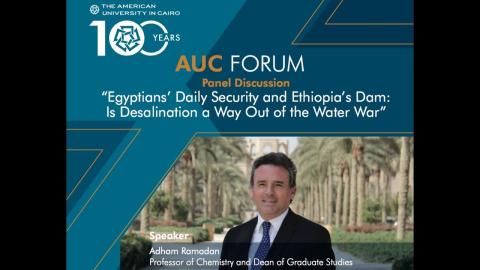
Tackling Water Scarcity Through AI
Amal Esawi’s latest research employs AI and nano-enhanced materials to improve membranes used in desalination as a means of tackling water s...
Science and Tech


The Middle East and North Africa region is one of those most affected by climate change and hydrological extremes, facing challenges such as low rainfall and high temperatures. Climate change is expected to put significant pressure on already scarce water resources. Egypt’s dependency on the Nile is 97% of its total renewable water resources, making it vulnerable to flow variation due to climate change or upstream human activities. Its water share currently stands at 560 m3 annually per capita, which is far below the water poverty line (1000 m3 annually per capita). Due to the effects of climate change and the rapid population growth, the annual share of water per person is expected to drop below the 500 m3 threshold of absolute water scarcity before 2030.
Egypt is working on maximizing its water resources to meet the growing demand. The national measures include rationing water use, improving water quality, providing additional water resources and creating a suitable climate for optimal water management. The government has launched a national plan for water resources until 2037 and allocated $50 billion for water projects, possibly extending to $100 billion.
Well-educated graduates and innovative technologies are crucial to implementing water-related adaptation actions in Egypt and the region. Therefore, AUC supports innovation in water-related education and research activities.


Amal Esawi’s latest research employs AI and nano-enhanced materials to improve membranes used in desalination as a means of tackling water s...
Science and Tech
A bolt of energy rattles the bonds of a water molecule: H2O. The links between the molecule begin to snap as the oxygen and hydrogen particl...
Science and Tech
Did you know that every type of bacteria has a unique light signature? Mohamed Swillam, professor and chair of the Department of Physics, is...
Science and Tech
Hani Sewilam, professor at AUC’s Institute of Global Health and Human Ecology and CARES director, has been awarded the 2022 Water Energy Foo...
Science and Tech
What stands out about research conducted by Nageh Allam, professor of materials engineering, is the ability to create highly efficient solar...
Science and Tech
The Department of Chemistry's NanoEbers recently won the Coup de Couer prize at the French Egyptian Startup Competition for creating a techn...

As reported by the United Nations, Egypt is facing an annual water deficit of around 7 billion cubic meters and is expected to experience a ...

For the second year in a row, the Center of Excellence for Water at The American University in Cairo (AUC) is participating in Cairo Water W...

AUC and Alexandria University signed a Memorandum of Understanding (MOU) with the Holding Company for Water and Wastewater, Sierra Engineeri...

AUC’s USAID-funded Center of Excellence for Water is offering full four-year university scholarships for students in Egypt to study civil en...

A tip from the Office of Sustainability: Turn off the tap while you scrub!

Congratulations to Madina Mahmoud '12, '18 for receiving the 2019 Eni Young African Talents Award for her research on "a new future for wate...

AUC and Alexandria University have recently inaugurated a USAID-funded Center of Excellence for Water at Alexandria University.

AUC and Alexandria University are partnering to establish a USAID-funded Center of Excellence in Water. AUC, MIT and Cornell are the America...

For Egypt, the threat of global warming lies not only in rising sea levels, which are particularly dangerous to coastal cities such as Alexa...






